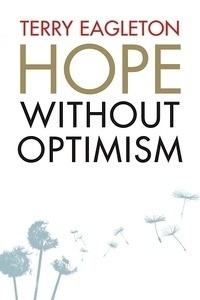Hope without Optimism

Editorial Yale University Press
Fecha de edición junio 2017 · Edición nº 1
Idioma inglés
EAN 9780300226447
178 páginas
Libro
encuadernado en tapa blanda
Resumen del libro
In a virtuoso display of erudition, thoughtfulness and humour, Terry Eagleton teases apart the concept of hope as it has been (often mistakenly) conceptualised over six millennia, from ancient Greece to today. He distinguishes hope from simple optimism, cheeriness, desire, idealism or adherence to the doctrine of Progress, bringing into focus a standpoint that requires reflection and commitment, arises from clear-sighted rationality, can be cultivated by practice and self-discipline, and which acknowledges but refuses to capitulate to the realities of failure and defeat. Authentic hope is indubitably tragic, yet Eagleton also argues for its radical implications as 'a species of permanent revolution, whose enemy is as much political complacency as metaphysical despair'.
It is a means of facing the future without devaluing the moment or obviating the past. Traversing centuries of thought about the many modes of hoping - from Ernst Bloch's monumental work through the Stoics, Aquinas, Marx and Kierkegaard, among others - this penetrating book throws new light on religious faith and political ideology as well as issues such as the problem of evil, the role of language and the meaning of the past. Hope Without Optimism is a brilliantly engaged, impassioned chronicle of human belief and desire in an increasingly uncertain world.
Biografía del autor
Terry Eagleton (Salford, Reino Unido, 1943) es profesor de Literatura Inglesa en la Universidad de Lancaster. Doctorado en el Trinity College de Cambridge, fue profesor en el Jesus College de la misma institución, en varios centros académicos de Oxford y en la Universidad de Manchester. Discípulo de Raymond Williams, Eagleton ha unido los estudios culturales con la teoría literaria, el marxismo y el psicoanálisis. Entre sus obras figuranLa idea de cultura (2001),El portero (2004),La estética como ideología (2006), El sentido de la vida (2008),Sobre el mal (2010),Terror santo (2008),El acontecimiento de la literatura (2013), Por qué Marx tenía razón (2015) y Cómo leer literatura (2016).








